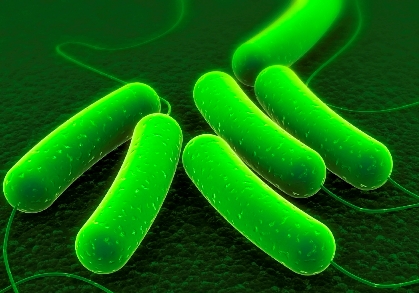E. coli Infections – Symptoms, Causes and Antibacterial Natural Treatments
Escherichia coli, also known as E. coli is a bacterium that lives in our intestines and is part of the normal flora in the intestinal tract. It has numerous beneficial functions, such as producing vitamin K2 or preventing the infiltration of harmful bacteria.

The German bacteriologist and pediatrician, Theodor Escherich, has discovered this bacterium in 1885, and as a result, he gave it its name. E. coli bacteria look like small rods. Most E. coli bacteria chains are harmless, except stereotype O157:H7 that produces a toxin known as Shiga that’s extremely harmful for the small intestine mucosa. It can cause infections of food poisoning.
Normally, a healthy adult can recover from an E. coli infection in 5 – 7 days. However, when it comes to children, youngsters, elderly and persons with weak immune system, various complications can occurs.
E. coli – Symptoms
The symptoms of an E. coli infection can appear 1, 3 or 4 days after the infection installed. Sometimes, they are visible after a week. You should know that numerous persons infected with Escherichia coli don’t report any noticeable symptoms, but they can transmit the infection to others.
– Abdominal pain (severe and sudden cramps)
– Fatigue and weakness
– Watery diarrhea (that usually occurs a few hours after the cramps)
– Fever
– Nausea and vomiting
– Bloody stool caused by the intestinal lesions
If the diarrhea persists, is severe or bloody, you must immediately go see a doctor.
E. coli – Causes
– Consumption of local contaminated water (including pools, lakes or springs)
– Diets rich in fibers
– Consumption of contaminated foods (minced beef meat, unpasteurized milk or raw vegetables)
– Contact with contaminated animals (at the farms, zoos or livestock fairs)
– Physical contact with an infected person
– Not washing your hands after using public toilets
E. coli – Natural Remedies
The risks of an E. coli bacterial infection increase when it comes to obese persons, those with weak immunity, patients with stomach surgery, persons with reduced gastric acidity, children, youngsters and elderly persons.
Moreover, the consumption of foods like soft cheese, raw milk, apple juice or undercooked meat can increase the chances of developing the bacterium. For this reason, the dairy products, fat products or those rich in fibers, as well as the raw vegetables and fruits can only worsen the symptoms.
Homemade Recipe
This medicinal product is extremely beneficial for any bacterial infection, not just for E. coli. The ingredients are extremely simple:
– 250 g parsley root
– 200 ml olive oil
– 250 g lemons, including their peels
– 200 g honey
Wash the parsley root and the lemons with apple cider vinegar and then mince them in the mincing machine. Put the mixture in a blender, adding the honey and the olive oil. Mix well until you obtain a homogeneous product and then keep it in the fridge, in a glass jar with a lid.
Take 1 tablespoon before breakfast and another tablespoon in the evening, after dinner, until you finish the product. Once the treatment it over, you must check to see if the bacterium has disappeared. If not, you can repeat the treatment once more.
Onion
Scientific studies have shown that onion has the capacity of fighting against E. coli bacteria, Helicobacter Pylori that causes stomach ulcer and Salmonella infections. All these are due to the quercetin and sulfur compounds in the onion.
Also, various other studies have shown that onion has anti-bacterial actions against the streptococci causing cavities and against 2 other microbes causing gingivitis.
The most powerful antibacterial effect was noticed in raw and freshly chopped onion. Equally beneficial is garlic. 2 – 3 garlic cloves per day can do wonders.



